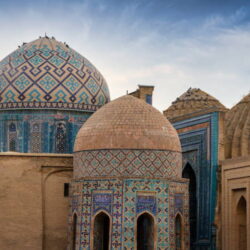Performing Umrah during Ramadan is a deeply spiritual journey that many Muslims around the world aspire to experience. The blessed month of Ramadan is a time of heightened spiritual rewards, reflection, and connection with Allah, and performing Umrah during this sacred month amplifies the rewards of the pilgrimage. However, preparing for Umrah in Ramadan requires careful planning and attention to detail. The combination of fasting, intense crowds, and the religious significance of the month means that pilgrims need to prepare both spiritually and practically to make the most of their journey.
In this ultimate guide, we’ll walk you through everything you need to know to prepare for Umrah during Ramadan, ensuring a smooth, rewarding, and memorable experience.
1. Start Preparing Early: Why Timing Matters
The first and most important step in preparing for Umrah in Ramadan is starting early. Ramadan and Umrah are both significant events, and the closer it gets to the start of the holy month, the more challenging it becomes to secure affordable packages and make necessary arrangements. Booking your Umrah package well in advance ensures that you have ample time to prepare spiritually, mentally, and practically.
Why Early Planning is Crucial:
- Availability of Packages: Umrah packages, especially during Ramadan, are in high demand. The earlier you book, the more options you have to choose from, including different types of accommodations and transportation.
- Affordability: The closer you get to Ramadan, the higher the prices. Early booking helps you lock in better rates.
- Spiritual Preparation: Having time to prepare spiritually ensures you can make the most of your time in the Holy Lands. You can focus on the rituals, prayers, and supplications that matter most.
2. Set a Realistic Budget and Choose the Right Package
One of the first practical steps in preparing for Umrah during Ramadan is setting a realistic budget. Umrah packages during Ramadan can be expensive due to high demand, limited availability, and additional services such as guided tours, transportation, and proximity to the Masjid al-Haram and Al-Masjid an-Nabawi. However, there are affordable options available if you plan carefully.
Tips for Budgeting:
- Know Your Financial Limits: Assess how much you can comfortably spend on the trip without straining your finances. Factor in accommodation, flights, meals, transportation, and any optional services.
- Compare Packages: Research and compare different Umrah packages for Ramadan. Look for what’s included (accommodation, meals, transportation, etc.) and evaluate the overall value of each package.
- Consider Off-Peak Days: If your schedule is flexible, consider traveling during the middle of Ramadan when prices may be slightly lower compared to the beginning or end of the month.
3. Focus on Spiritual Preparation
Umrah in Ramadan is a time for deep spiritual reflection, and it’s important to mentally and spiritually prepare for the journey. The pilgrimage itself is physically demanding, especially when combined with fasting, so preparing yourself spiritually is key to making the most of this opportunity.
Spiritual Preparation Steps:
- Learn the Rituals of Umrah: Take the time to understand the rituals of Umrah, including the Ihram, Tawaf, Sa’i, and Tahallul. Knowing the significance of each act will enhance your spiritual connection during the pilgrimage.
- Engage in Dhikr and Dua: Spend time engaging in Dhikr (remembrance of Allah) and making Dua (supplications). The more you immerse yourself in worship before the journey, the more spiritually attuned you’ll be during Umrah.
- Fasting Practice: Since you’ll be fasting during Ramadan while performing Umrah, practice fasting in the days leading up to your trip. This helps you adjust to the physical demands of fasting while also preparing you mentally for the experience.
4. Prepare for the Physical Demands of Umrah During Ramadan
Performing Umrah during Ramadan involves fasting while performing physical acts of worship. This can be challenging, especially considering the high temperatures, long walks to the Haram, and the extended hours of prayer. Proper physical preparation ensures you can endure the physical challenges and make the most of your spiritual journey.
Physical Preparation Tips:
- Maintain Physical Fitness: Start walking regularly or engaging in light exercise to build stamina for the long walks involved in Tawaf and Sa’i. Regular walking also helps to improve your overall endurance and prepare your body for the physical activity.
- Hydrate Well Before Fasting: Ensure you’re well-hydrated before beginning your fast each day during Ramadan. Dehydration can make the physical demands of Umrah more challenging, so drink plenty of water in the hours before dawn (Suhoor).
- Get Adequate Rest: Prioritize good sleep in the weeks leading up to your trip. Ramadan is physically demanding, especially when combined with Umrah rituals, so being well-rested will help you stay alert and energized throughout the day.
5. Packing Smartly: Essentials You Need to Bring
Packing for Umrah during Ramadan requires careful consideration of your needs. The environment in Mecca and Medina can be hot, and you’ll be walking long distances, so comfort is key. Additionally, packing the right items will ensure that you’re prepared for any situation, including the demands of fasting.
Essential Items to Pack:
- Ihram Clothing: The two-piece white clothing for men and modest clothing for women is essential when you enter into the state of Ihram. Make sure you have clean, comfortable Ihram garments.
- Comfortable Footwear: Since you’ll be walking a lot, make sure you bring comfortable sandals or shoes that are easy to walk in for long distances.
- Prayer Mats and Tasbeeh: Having your own prayer mat for prayers in the Haram can be convenient, as well as a Tasbeeh (prayer beads) for Dhikr.
- Sunscreen and Hat: The weather can be quite hot in Mecca and Medina, so protect yourself from the sun by bringing sunscreen, a hat, or a scarf to shield yourself.
- Medications and Health Supplies: If you take medication or have health concerns, make sure to carry the necessary supplies, including pain relief, allergy medication, and hand sanitizers.
6. Book Flights and Accommodation Early
Flights and accommodation for Umrah during Ramadan can become scarce and expensive the closer it gets to Ramadan. As soon as your Umrah package is confirmed, book your flights and accommodations early to avoid the hassle of last-minute arrangements.
Tips for Booking:
- Flights: Compare airlines and book a flight that aligns with your schedule and budget. Booking early allows you to secure a lower price and choose convenient flight times.
- Accommodation: Proximity to the Haram is essential, but it can be costly. If budget is a concern, look for affordable options slightly further from the Haram, but that offer reliable shuttle services.
7. Understand the Crowd Dynamics During Ramadan
Ramadan is one of the busiest times for Umrah, and the crowds can be overwhelming, especially during the final ten days. Knowing how to manage the crowds is essential for a smooth experience.
Managing the Crowds:
- Pray Early or Late: During Ramadan, the Haram can get crowded, especially for Taraweeh prayers. To avoid the rush, try to pray at off-peak times, such as early in the morning or late at night.
- Plan Your Visits: Plan your Umrah rituals around prayer times to avoid peak crowd hours. Perform Tawaf and Sa’i during less crowded hours to avoid long lines.
- Be Patient and Calm: The crowds can sometimes be overwhelming, but remember that patience is key. Focus on your worship and avoid distractions.
8. Be Prepared for Iftar and Suhoor Meals
During Ramadan, you will be fasting, which means managing your meals before dawn (Suhoor) and at sunset (Iftar). Many Umrah packages during Ramadan include meals, but it’s important to understand what is offered and plan accordingly.
Tips for Meals:
- Look for All-Inclusive Packages: Some packages include meals for Suhoor and Iftar during Ramadan. If your package doesn’t include meals, plan where you’ll get them from and how much it might cost.
- Iftar Meals in the Haram: During Ramadan, there are often community Iftar meals available near the Haram. These are free and a great opportunity to break your fast with fellow pilgrims.
- Stay Hydrated: Ensure you drink plenty of water during Suhoor to stay hydrated throughout the day, especially when performing the physical rituals of Umrah.
9. Consult With a Religious Scholar or Guide
If you’re new to performing Umrah or have specific questions about the rituals, it’s helpful to consult with a religious scholar or guide. Many agencies offer spiritual guides who can provide guidance on the rituals and prayers, ensuring you have a more enriching experience.
Conclusion
Preparing for Umrah during Ramadan is a deeply spiritual and physically demanding process, but with the right planning, it can be a rewarding and fulfilling experience. Starting early, setting a clear budget, preparing spiritually, and ensuring physical readiness will help you make the most of your pilgrimage. By carefully planning your trip, packing wisely, and managing your time and resources effectively, you can perform Umrah during Ramadan with peace of mind, experiencing both the spiritual and physical benefits of this blessed journey.




